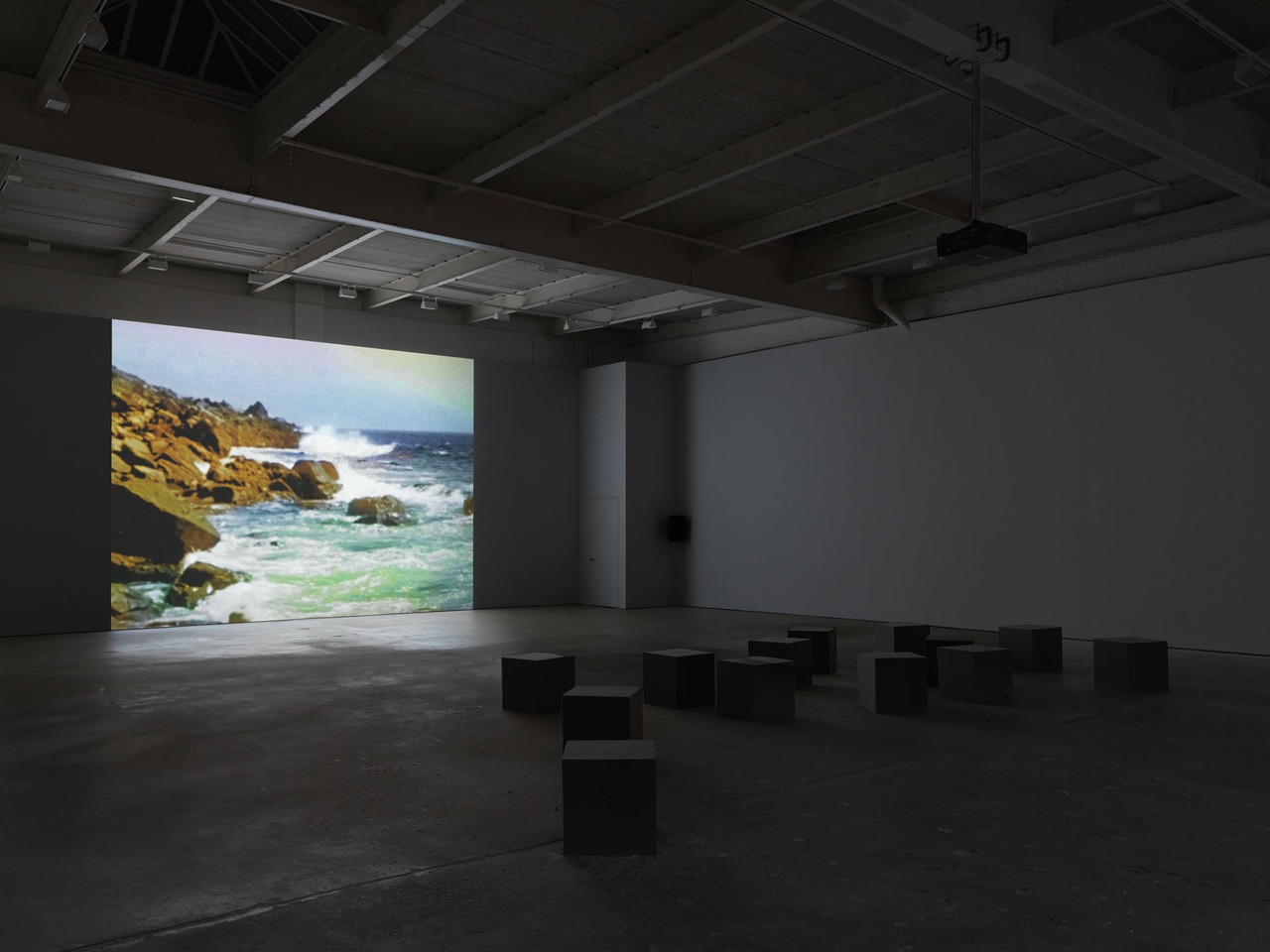James Welling
Seascape
10 Jul - 04 Aug 2017
JAMES WELLING
Seascape
10 July - 4 August 2017
David Zwirner is pleased to present Seascape (2017), a new film by James Welling at its 519 West 19th Street location. This will be the United States premiere of the work and the artist's seventh solo presentation at the gallery.
In Seascape, Welling combines his family's past with the histories of cinema, photography, and painting. The film is an homage to the artist's grandfather, William C. Welling, who studied with the American Impressionist painter Wilson Irvine and corresponded with the seascape painter Fredrick Waugh (1861-1940). Using the recently introduced Cine-Kodak Model B 16mm camera, Welling's grandfather shot the black-and-white reversal footage in the early 1930's in Ogunquit, Maine, at the suggestion of Waugh. Over the course of two days, he filmed the Atlantic Ocean at Perkins Cove—which was a celebrated site for seascape painters—capturing images of the rocky coast, which he subsequently used as a basis for a 22 x 27 inch oil painting. For Seascape, Welling took digital color samples of his grandfather's painting and, working with three animators, colorized the original footage using After Effects and Photoshop. The audio component is a contribution from the artist's brother, William B. Welling, a musician. The sound, which encompasses a slow, continuous progression of three chords with Foley effects, uses a 1940 "Gloria" accordion, as well as two drums—a 1826 Eli Brown replica snare drum made in 1990 with 32 beach pebbles placed on the drum head and a Remo "Ocean Drum." As a collaborative work between the artist, his grandfather, and his brother, the film, like Welling's photographic series "Diary/Landscape" (1977-1986) and "Wyeth" (2010-2015), extends the artist's interest in incorporating autobiographical elements into his work.
Heike Eipeldauer, who co-curated Welling's 2017 survey exhibition, Metamorphosis, notes on the film, "Seascape's traces of use...generate an effect of abstraction, exposing the temporal material conditions of the formation of the doubly translated seascape. This brings to mind that the genesis of abstraction, from Caspar David Friedrich through the Impressionists to Piet Mondrian, developed via the genre of the landscape. In Seascape, Welling arrives at a subjective photographic practice, in the form of film, which once again becomes manifest in a specific nexus of landscape, abstraction, and emotion."1
1 Heike Eipeldauer, James Welling: Metamorphosis. Exh. cat. (Ghent, Vienna, and Munich: Stedelijk Museum voor Actuele Kunst, Ghent, Kunstforum Wien, and Prestel Verlag), p. 51.
Seascape
10 July - 4 August 2017
David Zwirner is pleased to present Seascape (2017), a new film by James Welling at its 519 West 19th Street location. This will be the United States premiere of the work and the artist's seventh solo presentation at the gallery.
In Seascape, Welling combines his family's past with the histories of cinema, photography, and painting. The film is an homage to the artist's grandfather, William C. Welling, who studied with the American Impressionist painter Wilson Irvine and corresponded with the seascape painter Fredrick Waugh (1861-1940). Using the recently introduced Cine-Kodak Model B 16mm camera, Welling's grandfather shot the black-and-white reversal footage in the early 1930's in Ogunquit, Maine, at the suggestion of Waugh. Over the course of two days, he filmed the Atlantic Ocean at Perkins Cove—which was a celebrated site for seascape painters—capturing images of the rocky coast, which he subsequently used as a basis for a 22 x 27 inch oil painting. For Seascape, Welling took digital color samples of his grandfather's painting and, working with three animators, colorized the original footage using After Effects and Photoshop. The audio component is a contribution from the artist's brother, William B. Welling, a musician. The sound, which encompasses a slow, continuous progression of three chords with Foley effects, uses a 1940 "Gloria" accordion, as well as two drums—a 1826 Eli Brown replica snare drum made in 1990 with 32 beach pebbles placed on the drum head and a Remo "Ocean Drum." As a collaborative work between the artist, his grandfather, and his brother, the film, like Welling's photographic series "Diary/Landscape" (1977-1986) and "Wyeth" (2010-2015), extends the artist's interest in incorporating autobiographical elements into his work.
Heike Eipeldauer, who co-curated Welling's 2017 survey exhibition, Metamorphosis, notes on the film, "Seascape's traces of use...generate an effect of abstraction, exposing the temporal material conditions of the formation of the doubly translated seascape. This brings to mind that the genesis of abstraction, from Caspar David Friedrich through the Impressionists to Piet Mondrian, developed via the genre of the landscape. In Seascape, Welling arrives at a subjective photographic practice, in the form of film, which once again becomes manifest in a specific nexus of landscape, abstraction, and emotion."1
1 Heike Eipeldauer, James Welling: Metamorphosis. Exh. cat. (Ghent, Vienna, and Munich: Stedelijk Museum voor Actuele Kunst, Ghent, Kunstforum Wien, and Prestel Verlag), p. 51.

